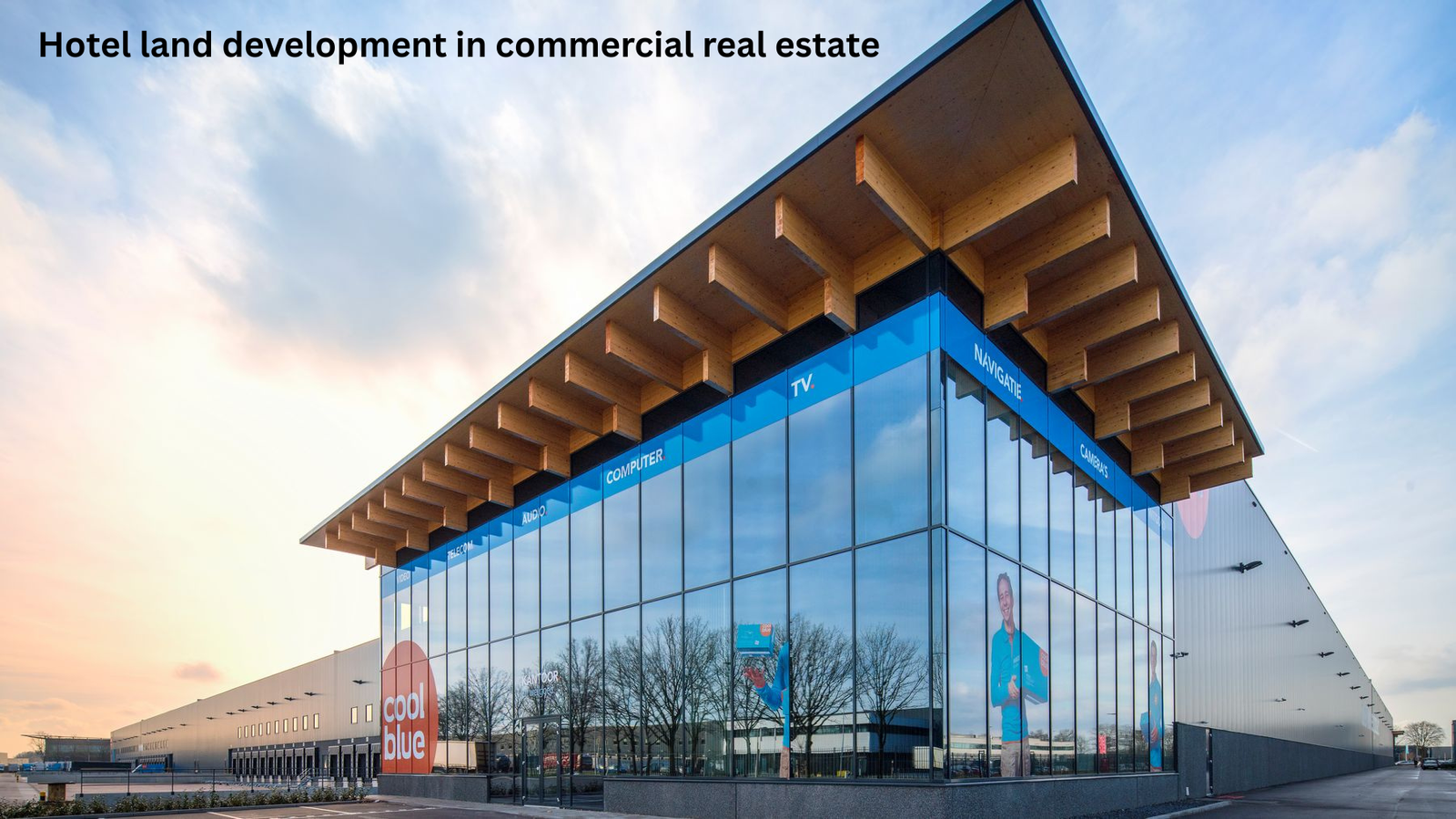Defining Hotel Land Development in Commercial Real Estate
Introduction
Hotel land development in commercial real estate refers to the process of identifying, acquiring, planning, and constructing a hospitality property on a parcel of land, tailored specifically for lodging services. This form of development plays a critical role in supporting tourism, business travel, and regional economic growth. Hotels, whether standalone or part of a larger mixed-use project, are high-performing commercial assets that require strategic planning, regulatory alignment, and design sophistication. Unlike other commercial developments such as offices or retail centers, hotels must accommodate continuous service operations, guest experience considerations, and brand-specific requirements, all while delivering sustained profitability. Hotel land development is a complex endeavor that combines real estate fundamentals with hospitality-focused operational dynamics to meet the evolving demands of global travelers and local markets.
Location Strategy and Site Selection
The success of hotel land development begins with the strategic selection of location. Developers must evaluate a site’s proximity to key demand generators such as airports, business hubs, tourist attractions, convention centers, hospitals, and transport corridors. The ideal site must offer high visibility, seamless accessibility, and potential for guest convenience. Additionally, environmental and social factors such as surrounding noise levels, views, cultural sites, and neighborhood character also influence the appeal of the location. A well-positioned hotel site aligns with anticipated travel demand—be it business, leisure, or transit—and serves as a critical determinant of future occupancy rates, pricing power, and brand positioning. Site selection also considers the competition landscape, ensuring that the development fulfills a unique value proposition in the market.
Regulatory Framework and Zoning Compliance
Hotel land development requires rigorous attention to local regulations, including land use zoning, building codes, and hospitality-specific standards. The site must be zoned for commercial or mixed-use purposes that permit hotel activity, and in some cases, may require rezoning or conditional use approvals. Key permits include environmental clearances, building plan sanctions, fire safety approvals, and tourism department licenses. Coastal zones, heritage sites, and environmentally sensitive areas often have special restrictions that impact hotel design and scale. Adherence to government guidelines on room sizes, health and hygiene, accessibility, and emergency infrastructure is mandatory. Engaging with local authorities early in the development cycle is essential to mitigate legal risk, avoid construction delays, and ensure compliance with hospitality development norms.
Design Programming and Operational Planning
Designing a hotel requires a unique integration of architectural functionality and operational efficiency. The building layout must accommodate guest circulation, service flow, and brand-mandated spaces such as lobbies, restaurants, conference rooms, spas, and back-of-house facilities. The size and configuration of the land impact how many keys (rooms) can be built, how parking is structured, and how guest and staff access points are managed. The orientation of the building should take advantage of natural views and lighting, while also allowing privacy and noise buffering. Operational considerations such as housekeeping logistics, kitchen ventilation, laundry zones, and mechanical systems must be seamlessly embedded into the design. For branded hotels, adherence to design guidelines and brand standards ensures uniformity and contributes to guest loyalty.
Financial Structuring and Brand Engagement
Hotel land development in commercial real estate is capital-intensive and requires careful financial structuring to balance development costs with projected revenue streams. Developers must analyze projected average daily rates (ADR), occupancy trends, and operating expenses to establish financial viability. Funding may come from a mix of equity, debt, private investment, or joint ventures with hotel operators. In many cases, developers partner with national or international hotel chains through franchise agreements, management contracts, or lease models. Brand selection significantly affects the market positioning, pricing, and profitability of the hotel. Premium brands attract higher-paying clientele but come with stringent design and operational requirements, while budget or mid-scale brands offer cost efficiency and broader market appeal. The right brand fit ensures long-term stability and drives competitive performance in the hospitality sector.
Market Analysis and Long-Term Asset Strategy
Comprehensive market analysis is vital to determine the type and scale of hotel that fits a given location. This includes studying local tourism trends, business travel volume, competitive supply, seasonality, and customer preferences. Based on this analysis, developers choose between various hotel formats such as luxury, business, boutique, economy, or extended stay. This strategic decision directly impacts the size of the land required, the investment plan, and the anticipated return on investment (ROI). Beyond construction and initial operations, hotel development should be viewed through a long-term lens, incorporating lifecycle cost management, renovation planning, and future adaptability. Hotels built on strategically located land often appreciate in value over time, making them not just income-generating assets but also long-term capital gain opportunities within the commercial real estate portfolio.
Conclusion
Hotel land development in commercial real estate is a specialized and multidimensional process that combines strategic land acquisition, regulatory navigation, operational planning, financial modeling, and brand alignment. Unlike standard commercial developments, hotels require thoughtful integration of real estate design with hospitality operations to ensure a seamless guest experience and sustainable profitability. The success of a hotel project is shaped by the synergy between its location, market demand, design functionality, and operational execution. For developers and investors, hotel land development offers not just a real estate opportunity but a dynamic business model that delivers enduring returns and economic influence. With the right approach, hotel developments become anchor properties that elevate the commercial value of entire districts and play a pivotal role in shaping vibrant urban environments.
Hashtags
#HotelDevelopment #CommercialRealEstate #RealEstateInvesting #LandDevelopment #HotelInvestment #PropertyDevelopment #RealEstateTrends #HospitalityIndustry #UrbanDevelopment #RealEstateMarket #InvestmentOpportunities #HotelDesign #CommercialProperties #RealEstateStrategy #LandUsePlanning #HotelManagement #RealEstateNews #DevelopmentProjects #SustainableDevelopment #RealEstateInvestors #HospitalityDevelopment #PropertyInvestment #RealEstateGrowth #HotelConstruction




